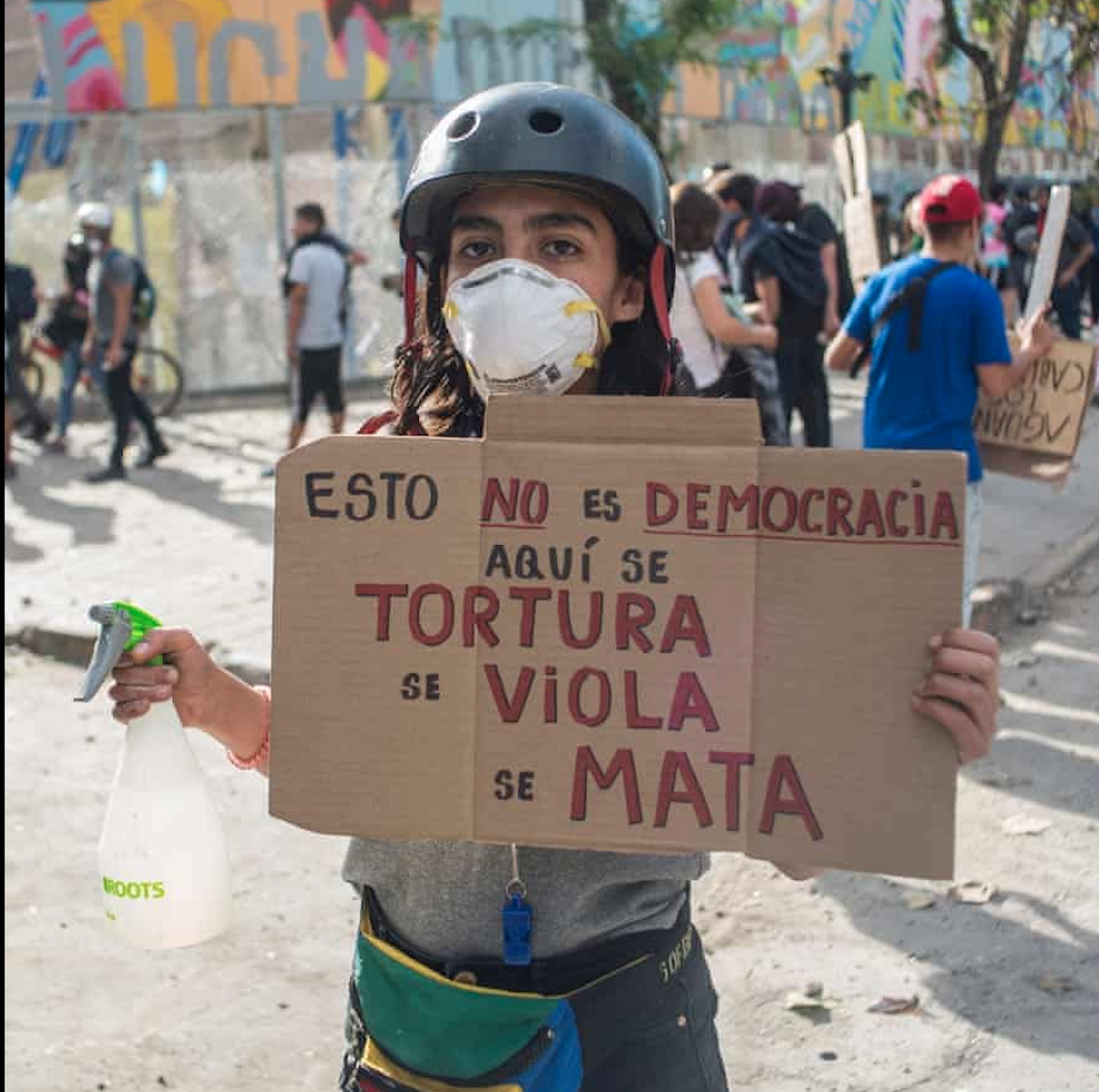
The elections in Chile that led to Boric winning the presidency were a test of Chile’s eroding democracy. Amid social unrest, mass protest, and the coronavirus pandemic, the election process became increasingly polarized and hostile between political parties. The successful and transparent election of Gabriel Boric shows that Chile’s democracy, while perhaps fragile, has the tools to survive and strengthen, especially with the upcoming re-writing of its national constitution.
In 2019, rising inequality and economic disenchantment caused mass protest and unrest in the country, which had until recently been considered a pillar of stability and democracy in Latin America. The protests rose from the “deeply entrenched” inequality [2] and a disproportionate lack of access to education for the lower classes in the country, whose families “sacrificed to succeed in a supposedly meritocratic system, only to find that they are still excluded from its benefits” [2]. The struggles of students and the general Chilean population, who critiqued the elitist and highly capitalistic government, took the front page for months of protests that led to President Sebastián Piñera calling a state of emergency and employing the military against the student protestors [2]. The violence, deaths, and curfews that followed this state of emergency [3] reminded Chileans of Pinochet’s authoritarian reign of terror, and Piñera’s refusal to face the issues in a meaningful manner was an even bigger cause for concern.
After Piñera’s use of the military only emboldened activists and brought the country’s stability and reputation into question, he attempted to make smaller concessions with the public, ending the metro fare that catalyzed the protest and changing his cabinet. Although he promised to address these economic failures, he reshuffled his cabinet during the protests only to add sympathetic conservative ministers and consolidate his power [4]. These are all in alignment with Bermeo’s concern of executive aggrandizement with democratic backsliding [5], as Piñera focused on protecting his position and power rather than addressing the public’s concerns. Additionally, Piñera used the coronavirus pandemic to pivot the national conversation and attempt to tamper down protests, but theories of democratic backsliding warn that these types of crisis “can provide the excuse or the reason for antidemocratic actions” [6].
In the aftermath of these protests, though, Chile held a referendum for the re-writing of the country’s constitution, which was written originally under the regime of authoritarian dictator Augusto Pinochet, and the people decided to attempt a re-write. In the election, which was between far-right conservative Jose Antonio Kast and leftist and student activist Gabriel Boric. The new Consitution and its future was a topic of the election, as Kast was not a proponent of the new constitution, which might show a lack of compromise towards securing democracy. The constitutional convention was therefore afraid of Kast’s potential victory, as ““There’s so much at stake,” said Patricia Politzer, a member of the convention from Santiago. “The president has enormous power and he could use the full backing of the state to campaign against the new Constitution.”” [7]. Although Levitzky and Ziblatt point toward a rejection of the constitution as a key indicator of authoritarian behavior [8], the rejection of a more democratic constitution that moves past the Pinochet-era dictatorship is also a sign of potential authoritarian behavior.
The increased polarization was also a fear of this election, as Chileans opted for candidates that deviated from the more traditionally centrist views that had dominated politics until recently. Although both candidates attacked each other and their ideologies throughout their campaigns, Kast specifically attacked the legitimacy of his opponent, and “warned that electing Mr. Boric would deepen unrest and stoke violence” [7]. The election was saturated by fearmongering, and in the case of Boric, it was fear of leftist and socialism– and not of his policies, which were in line with what Chilean protesters have been asking throughout this time of crisis. These attacks of his policies and character as “subversive” and “opposed to the existing constitutional order” situated him as an “existential threat, either to national security or to the prevailing way of life” [8]. Kast also attacked his personal character, lauding allegations of sexual harassment that were later retracted although Boric made himself “available for any investigation”. The fact that Kast was sued for these false or misrepresented allegations, though, points towards democratic strength.
In fact, Chile sustained its democracy, and Kast conceded the results in an election that was free and transparent. Although Boric’ election has received concern from a region that has seen many autocratic socialists in recent history, his election and the new Consitution are an opportunity to strengthen Chilean democracy and bring it back from the brink of erosion. Pinochet’s constitution “created the legal basis for a market-driven economic model that has privatized pensions, health and education” [1]. On the other hand, Boric promised to shift “from a private pension system to a public one; pardoning student debt; increasing investment in education and public health care” and include increased rights for women and Indigenous communities, all of which might be included in the new constitution, and secure the future of Chilean democracy.
The biggest threat to this effort is polarization, and the rewriting of the constitution. Democratic norms might be challenged or exploited by actors on either side. Nevertheless, the successful election demonstrates that despite backsliding in the past two years, Chile’s democracy is still stable and strong enough to come back from the precipice.
[1] The Guardian: Chile protesters: ‘We are subjugated by the rich. It’s time for that to end’
[2] NYT: ‘Chile Woke Up’: Dictatorship’s Legacy of Inequality Triggers Mass Protests
[3] The Guardian: Chile police using Covid-19 quarantine as pretext to crush protest, activists say
[4] Reuters: Chile’s President Pinera removes interior, foreign, defense ministers
[5] Nancy Bermeo, “On Democratic Backsliding,” [6] Ellen Lust and David Waldner, Unwelcome Change: Understanding, Evaluating, and Extending Theories of Democratic Backsliding, page 11[7] NYT: Gabriel Boric, a Former Student Activist, Is Elected Chile’s Youngest President
[8] Levitsky and Ziblatt, How Democracies Die
0 Comments